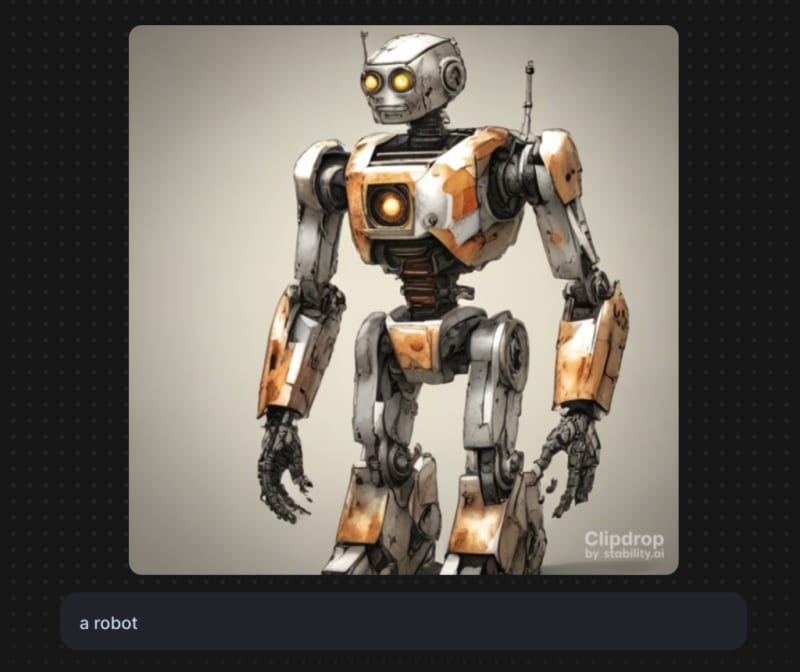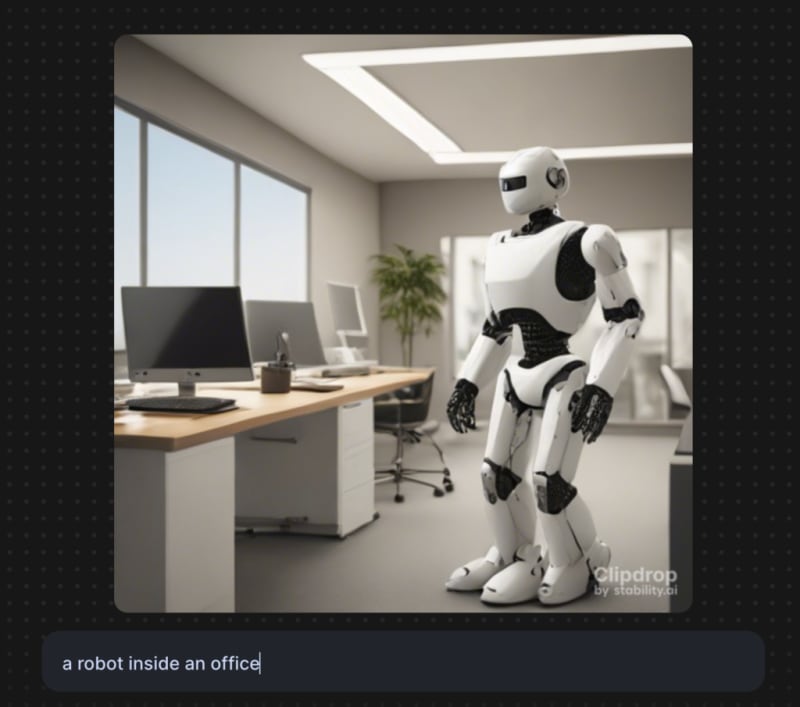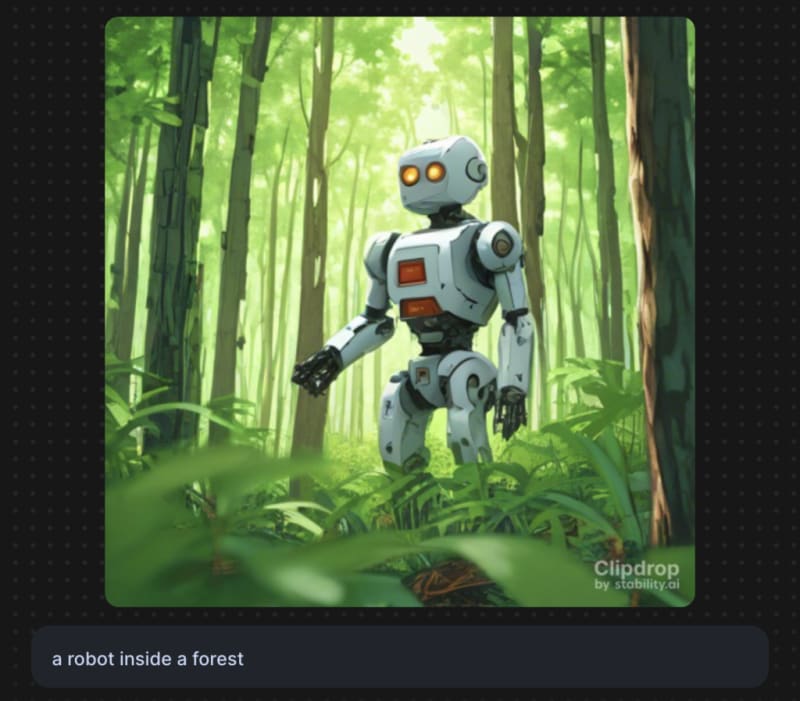Introduction
Among the outstanding advances in image generation through artificial intelligence is Stable Diffusion, a powerful tool that has revolutionized the creation of visual content. Stability AI aims to maintain its leading position in generating images from text with the recent release of its Stable Diffusion XL 1.0 image generator. ‘XL’ refers to the fact that it has been trained with almost three times more parameters than its previous models.
Today we will talk about this new model and what improvements it brings and also explore the interactive system in image generation using artificial intelligence, thus introducing the revolutionary Stable Diffusion XL Turbo.
Improvements over previous versions
Stable Diffusion XL (SDXL) is positioned as a remarkable innovation with significant improvements in several aspects, marking a substantial advance over its predecessors.
The impressive increase in the number of parameters , reaching 2.3 billion, stands out as a crucial milestone. This expansion translates into a more powerful learning process and improved overall performance for the model.
This increase in capability is reflected in the hyper-realism that characterizes SDXL-generated images. Surpassing previous versions in detail and quality, the resulting images are distinguished by their stunning authenticity.
Another key aspect of the enhancement is evidenced by SDXL’s improved ability to generate realistic and consistent human faces. Improvements in facial features and expressions contribute to the creation of more convincing and vivid portraits.
In the area of image compositing, Stable Diffusion XL demonstrates an enhanced ability to create more compelling and convincing visual scenes. Optimized image compositing results in a more immersive and captivating visual experience.
Highlighting text readability, Stable Diffusion XL outperforms its predecessors by exhibiting superior efficiency in generating readable text within images. This advancement is especially valuable in applications such as creating advertisements or illustrations that effectively incorporate textual content.
SDXL’s image-to-image prompting functionality adds an additional layer of versatility to the model, going beyond the conventional text-to-image approach. The ability to generate variations of an image based on another image stands out as a distinctive element.
In addition, Stable Diffusion XL introduces inpainting and outpainting capabilities, allowing the reconstruction of missing sections in an image (inpainting) and the coherent extension of existing images (outpainting). These functions significantly expand the creative possibilities and applications of the model.
Together, these enhancements consolidate SDXL as a more robust and versatile model, broadening its potential impact in diverse industries and creative scenarios.
How to use Stable Diffusion XL
To use this new model for free up to a certain limit, we have the option to use it in DreamStudio. You can access from this link.
To start we will register with the button that appears at the top right with the text Login and that will allow us to do it with Google.
Then all we have to do is type in the prompt what we want Stable Diffusion to generate for us and click on the Dream button below.
As you can see I have also put “people” where it says Negative Prompt. This means that I don’t want people to appear in my image. I have also chosen a Pixel Art style, but there are quite a few more, in case you want to try some more interesting ones.
Turbo Version
Stable Diffusion XL Turbo (SDXL Turbo) redefines imaging through artificial intelligence by instantly generating visual content based on text, descriptions, or prompts. This innovative model is characterized by its ability to produce images while the user is writing instructions, thanks to advanced Adversarial Diffusion Distillation (ADD) technology.
This advance represents a significant transformation compared to its predecessor, drastically reducing the time required for image creation. ADD technology allows the process to be completed in a single step, eliminating the need for the 20 to 50 steps that characterized the previous model and extending the processing of each image by several seconds.
Although the resulting images do not reach the same level of detail as those produced by the previous method with more steps, the speed improvement is palpable, providing visually stunning results. In tests, SDXL Turbo demonstrated the ability to generate a 1024×1024 image in approximately 4 seconds, underscoring its outstanding efficiency.
To use it we will only have to go to this link and register as we did in DreamStudio’s web previously.
Once this is done, the text box will appear with which we can interact and see how our image is drawn as we write our prompt. Here is my result:
As you can see I have been varying my prompt little by little adding new ideas and finally I have tried to twist it and change the main character.
Conclusion
In the fascinating landscape of artificial intelligence, the evolution of models such as Stable Diffusion and its latest incarnation, SDXL 1.0, stands out as a tangible testament to the remarkable advances in image generation. These powerful tools, developed by Stability AI, have not only transformed visual content creation but have also set new standards in terms of capability and efficiency.
The introduction of SDXL 1.0, with its impressive training based on 2.3 billion parameters, demonstrates the continued dedication to innovation and the pursuit of excellence. This model, with the designation ‘XL’, overcomes previous limitations by significantly expanding its processing power, thus marking a significant milestone in the evolution of text-based imaging.
In addition, the revolutionary addition of Stable Diffusion XL Turbo takes the experience to new levels by enabling near real-time generation of images. This exceptional capability not only speeds up the creation process but also opens the door to exciting possibilities, such as special effects in video games and customized themes for individual users. The speed with which SDXL Turbo can create visual content offers unprecedented potential for the entertainment industry and digital creativity.
However, it is important to note that while these advances are remarkable, they still fall short of Midjourney, especially in terms of the realism that Midjourney achieves. Midjourney continues to be a benchmark in image generation, standing out for its ability to create stunningly realistic visual worlds that, so far, remain unmatched.

























